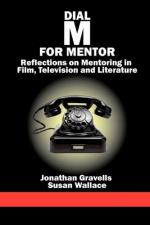|
This section contains 15,497 words (approx. 52 pages at 300 words per page) |

|
SOURCE: "Reader-Oriented Criticism and Television," in Discourse: Contemporary Criticism, University of North Carolina Press, 1987, pp. 74-112.
In the following essay, Allen applies the phenomenological theory of reader-oriented criticism to the viewing of television.
"Reader-response criticism," "reception theory," and "reader-oriented criticism" are all names given to the variety of recent works in literary studies that foreground the role of the reader in understanding and deriving pleasure from literary texts. Traditionally, says Wolfgang Iser, a leading force in the German variant of reader-oriented studies, critics have regarded the literary text as something that possesses meaning much in the way that an oriental carpet possesses a pattern. Thus critics saw their task as finding the "figure in the carpet"—the meaning of the work that lay hidden in its structure—and relating that meaning to other readers who had not discovered it for themselves (or who did not possess the interpretative...
|
This section contains 15,497 words (approx. 52 pages at 300 words per page) |

|


